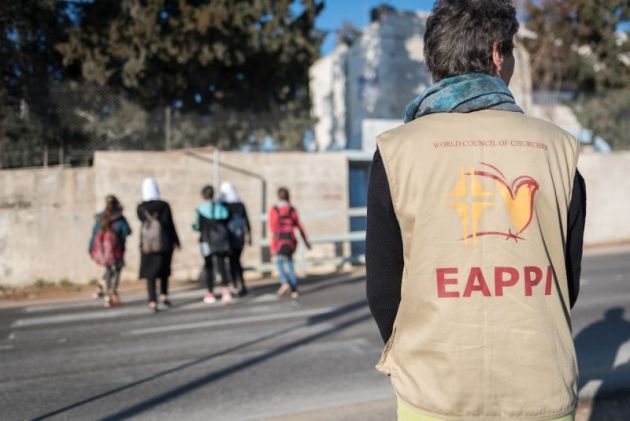World churches body condemns attacks, persecution of Christian communities in Asia, calls for peace in Israel, Palestine

The World Council of Churches Executive Committee has condemned attacks and persecution of Christian communities in Asia and reiterated its call for a just peace in Israel and Palestine.
"Throughout history, religious communities living in contexts in which other religions predominate have been among the most vulnerable groups in society," the statement on persecution in Asia reads, the WCC said May 27.
The executive committee of the WCC has held its May 22-28 meeting in Bossey near Geneva, Switzerland and it traditionally issues a statement on global issues affecting the members of the global church grouping representing more than half a billion Christians.
"In many parts of the world today, Christians in such contexts are among the most persecuted communities."
The statement acknowledges that, in in some contexts, Christian communities are unfairly or mistakenly linked to the colonial histories of their countries.
"They are frequently scapegoated in the context of prevailing geopolitical and religious undercurrents and narratives of retaliation, and their dignity and freedoms violated, often with impunity," the statement reads.
"And they are increasingly targeted in brutal violent attacks."
The violence occurs in the context of systematic marginalization, unequal citizenship rights, and discriminatory and blasphemy laws, the statement continues.
"In many contexts, the vulnerability of Christian communities is accentuated by their socio-economic situation, race, ethnic and or caste identity, and lack of access to land, resources, and education," the statement reads.
"Women are particularly vulnerable, being subjected to physical, and sexual violence, rape, abductions, forced marriages, and in cases of conversion, also to shaming, shunning, forced divorce and denial of custody of children," said the statement.
The WCC's Central Committee, its main governing body between assemblies elects 20 of its members to serve as the Executive Committee.
It meets twice a year appointing program staff, monitoring ongoing work, and supervising the budget approved by the Central Committee.
The Executive Committee, in another statement, reiterated its call for a just peace in Israel and Palestine.
'FABRIC OF OUR FAITH'
"That commitment is part of the fabric of our faith, and of the heritage of the ecumenical movement," reads the statement.
"We seek to express it by accompanying the churches, interfaith partners and communities of these lands in their witness and work for justice and for peace."
The WCC called for a peace founded on justice.
"Just as we categorically denounce antisemitism as sin against God and humanity, so do we reject discrimination, marginalization, collective punishment and violence against Palestinian people on the basis of ethnicity, race or religion also as sin against God and humanity," reads the statement.
"We call for an approach to the situation in Israel and Palestine that does not reduce it to a competition of binary opposites, in which one must choose one side or the other, but that recognizes and affirms the common humanity and equal God-given dignity and rights of all people of the region."
The WCC said it continues to support and promote the vision of the two-state solution as the only practicable configuration for peaceful coexistence.
The WCC calls on "all WCC member churches, ecumenical and interfaith partners and all people of conscience and goodwill to continue to uphold and assert the equal human dignity and rights of all people, both Israelis and Palestinians," the statement read.
